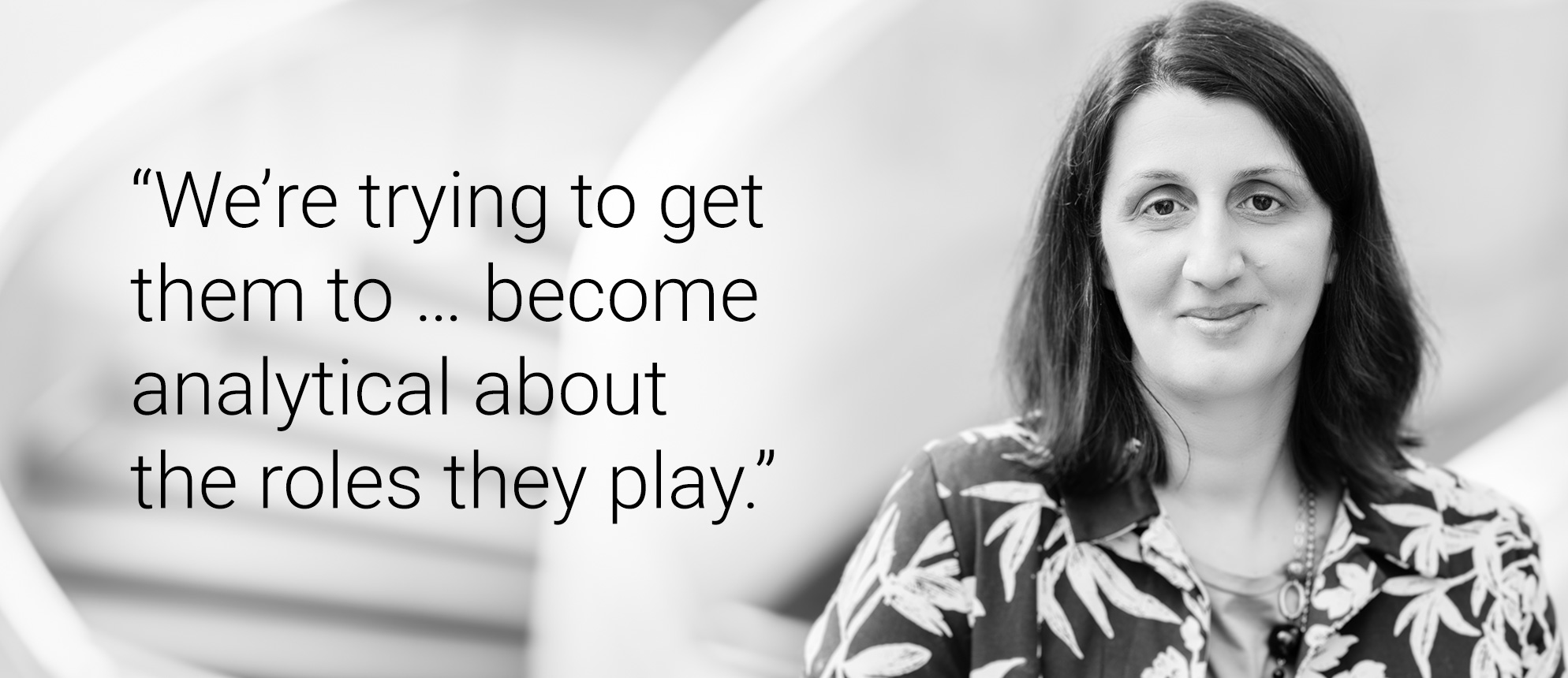- Future Students
- Current Students
- Faculty
- Staff
- Alumni
- Others
How does learning about genocide affect soldiers?

When University of Guelph-Humber student Andreea Sindiescu was first approached by her instructor Dr. Maja Catic about becoming a research assistant for a project she was working on, Sindiescu was both surprised and initially a bit daunted by the topic: a critical reflection on the challenges and opportunities that come from teaching a course on genocide in a professional military environment.
At the time, Sindiescu was finishing her first year in the Psychology program and the thought of participating in academic research as an undergraduate student hadn’t occurred to her. Once she got involved, however, she didn’t want to stop.
Dr. Catic’s ongoing research, which was aided by a research grant from the University of Guelph-Humber, is based on the experience of teaching a course on mass atrocity violence and genocide at Canadian Forces College, and analyzing the students’ writing and in-class participation to understand the effect of their studies.
“The course is a challenge to them, not because of all the gory and graphic stuff you encounter in this subject, but because historically mass violence of this kind – genocide and ethnic cleansing – have been committed by people in uniform,” Dr. Catic said.
“We’re trying to get them to write about this, respond to these questions and become reflective and analytical about the roles they play.”
The course focuses on three cases in particular: the Armenian Genocide, the Holocaust and the Rwandan Genocide. So far, Dr. Catic has noticed two revelations that seem to carry particular weight for the students. One is that genocide primarily occurs in the context of war, and the other is that it’s typically people in uniform who carry out these atrocities.
For Dr. Catic, her interest in the topic does have some biographical background. She’s originally from Bosnia, which was the location of an ethnic cleansing campaign during the Bosnian War of the 1990s.
“Even though for most of my graduate education I tried to stay away from it, it didn’t work,” she noted.
Sindiescu’s role has been to read through projects completed by the students to assess how the course is resonating with them.
The work has tied in more closely with her studies than she might have expected. She’s noticed that many of the students’ papers focus on the psychological aspect of genocide and issues around obeying authority, topics that relate directly to some of her UofGH coursework.
Now entering her third year, she hopes to continue working with Dr. Catic and still feels fortunate to have had the opportunity.
“It’s great that with a school this size, you can form close bonds with the professors,” she said. “At a bigger school, there’s no way I would have ever got the opportunity to do something like this.”




